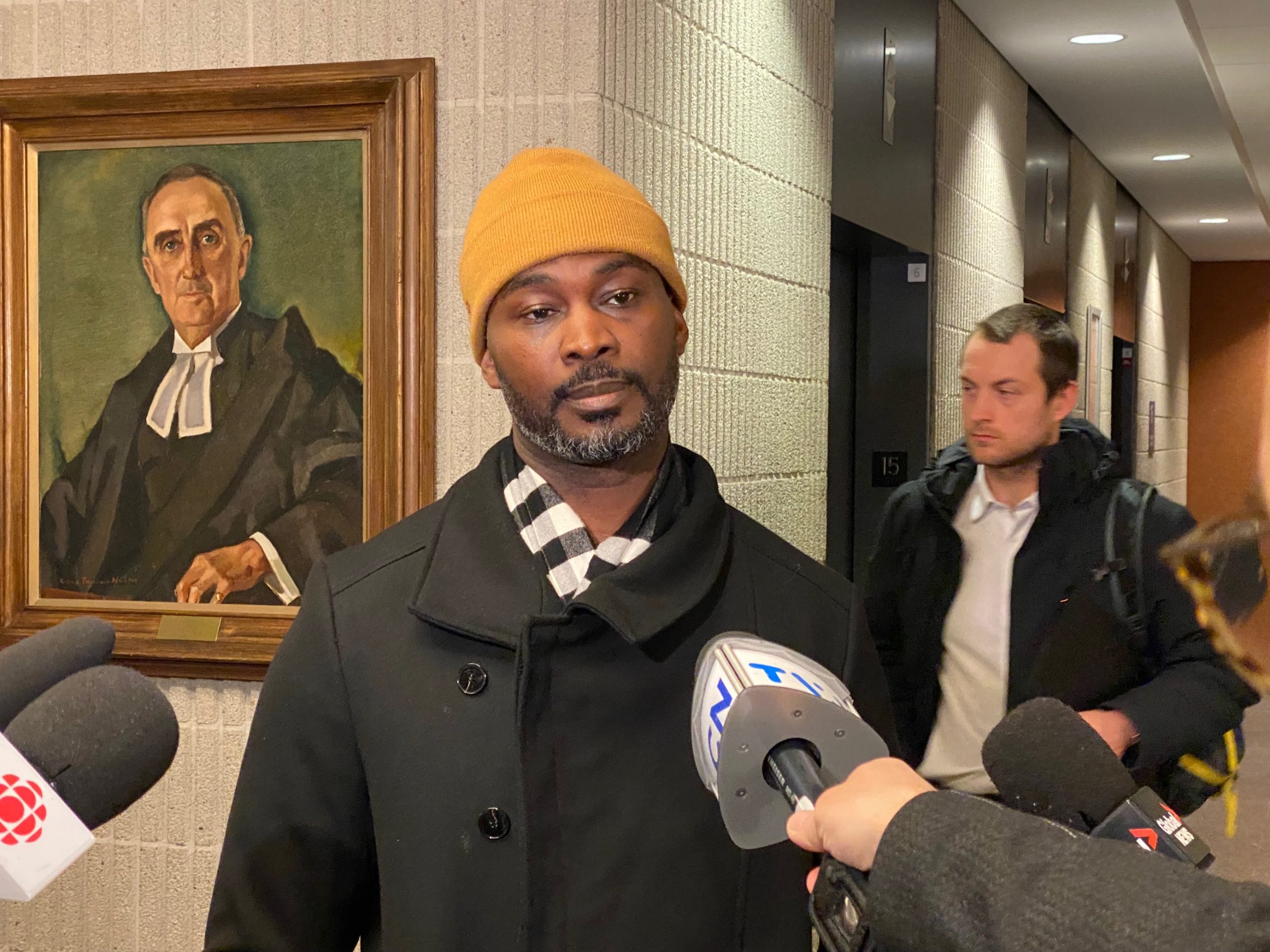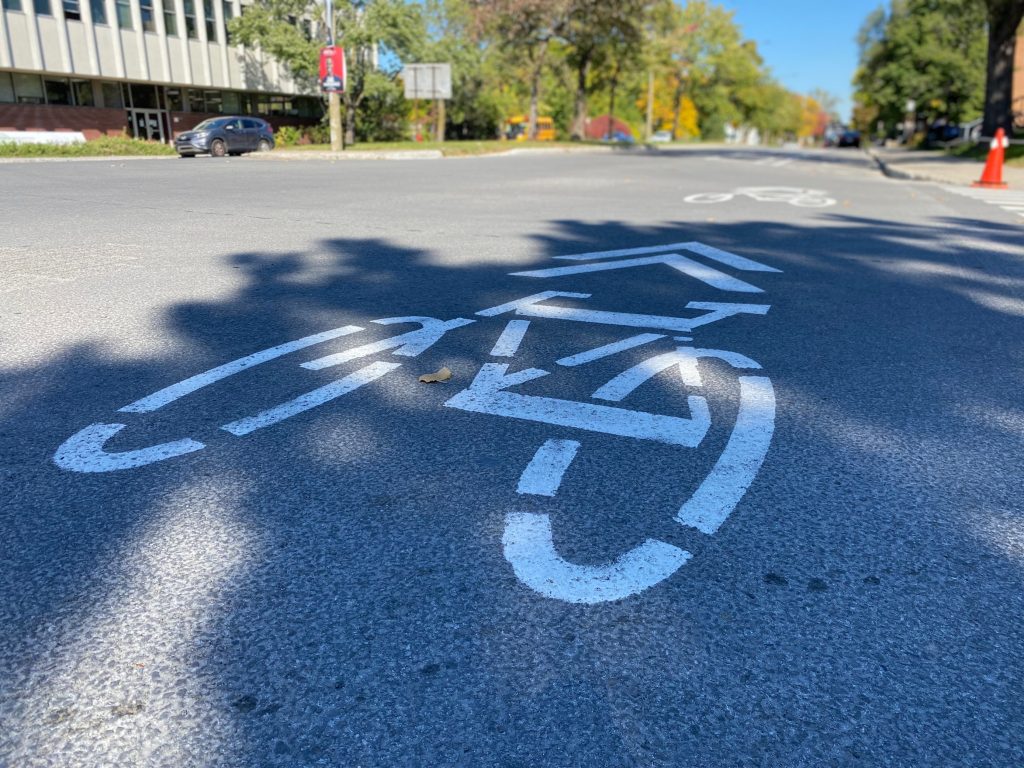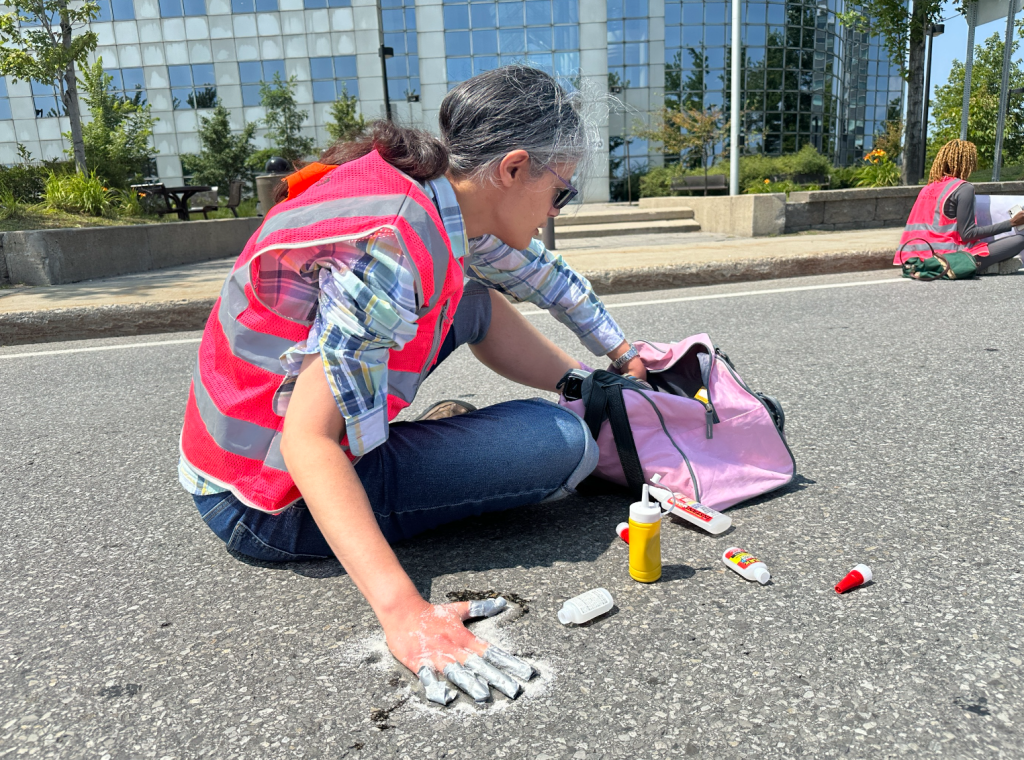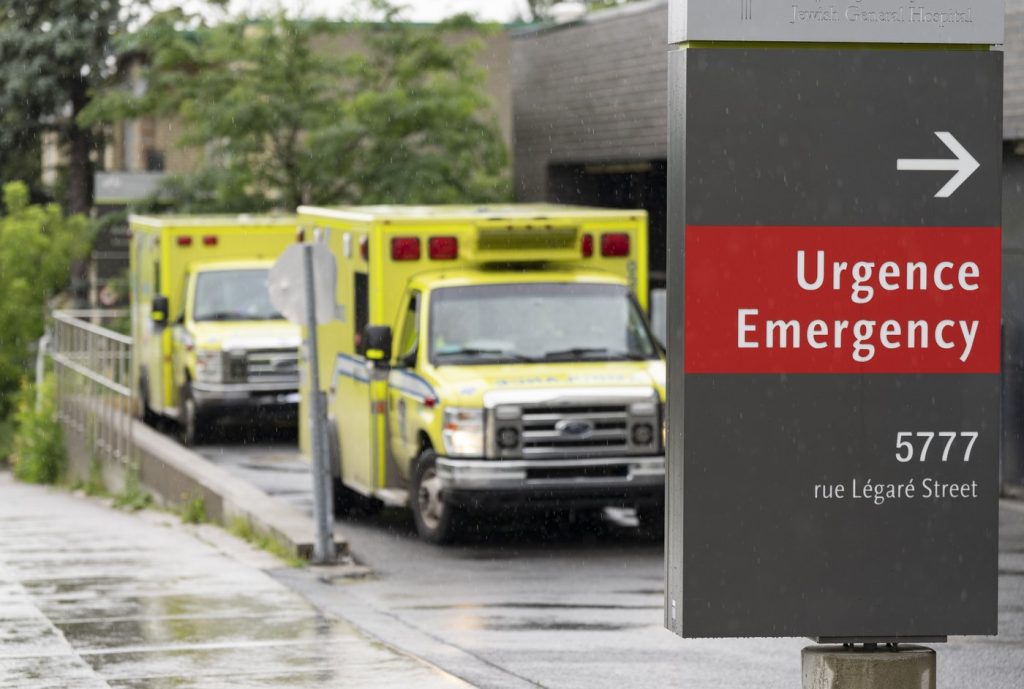Montreal Mayor Plante testifies in racial profiling class action
Posted February 15, 2023 4:00 am.
Last Updated February 15, 2023 7:13 pm.
Montreal Mayor Valérie Plante testified in a class-action lawsuit that claims the city hasn’t acted to combat systemic racial profiling by its police officers.
She told a judge that victims of social and racial profiling have the right to compensation, but it needs to be awarded based on a defined process to avoid wasting taxpayer dollars.
The lawsuit is led by the Black Coalition of Quebec and Alexandre Lamontagne, a Black man who alleges he was brutally arrested and detained by Montreal police outside a bar in 2017 without any valid reason.
Court documents say he was originally charged with assault and obstructing the work of police officers, but those charges were dropped the following year.
The group leading the $171-million lawsuit is asking for $5,000 in compensation for each racialized person who was arrested or detained by Montreal police without reason between August 2017 and January 2019.
“Proud to be here,” said Plante on Tuesday morning in court. “I’m here as the Mayor, but also on behalf of all those who are in the fight.”
“To advance as a society we have to ask these questions,” she added. “The definition of discrimination systemic to see it as a mix of behaviours and institutional practices.”
Both Lamontagne and his lawyer, Mike Diomande, reacted positively to Plante’s testimony. Diomande said the mayor’s statements show she and his clients are “speaking the same language, even if we’re taking different paths.”
‘‘At the end of the day, we have the impression it will overlap because we’re saying the same things and are carried by the same hopes for change,” he said outside the court.
Lamontagne said he was encouraged to hear the mayor recognize the existence of racial profiling and acknowledge the need for compensation for those who were wronged.
“It’s a step in the right direction,” he said.
Plante fielded repeated questions by a Diomande about why visible minorities are still treated unequally, more than 30 years after the city first publicly committed to tackling racial discrimination.
“The same issues, and it’s not normal, after 31 years, we have the same problem,” he said.
Plante told the court there’s no “magic wand” to eliminate systemic racism and racial profiling, but that both the city and police have been accelerating their efforts to do so.
She said there are processes in place to compensate victims, including the police ethics committee and the province’s human rights commission.
“For me as mayor, was very important to hear from the society. Were here today because the society changes and demands for an acceleration.”
“The city is an image of society. It’s sad to know that today there’s still discrimination and racism. We want to be in a world where there isn’t disparity. But the reality is that it’s there. The city is representative of society in general. It’s been years that we continue to innovate…If I had a magic wand to fix this, I would do it. We don’t want a disparity.”

Lead plaintiff Alexandre Lamontagne in racial profiling case, seen at Montreal courthouse Feb. 15, 2023. (CREDIT: Alyssia Rubertucci/CityNews)
RELATED:
- Montreal Mayor, SPVM director to testify in unfair arrest lawsuit
- Quebec court authorizes racial profiling class action against Montreal police
“We asked the OCPM to do this study, gave a big portrait, some to citizens and interest groups…38 recommendations, again we accepted them all without contestation,” added Plante. “First recommendation was to recognize the existence systemic discrimination. For us it was important because we wanted to represent the voice of society.”
“To name Bochra Manaï…that was the second recommendation…all of these recommendations were adopted by our administration because we have a real willingness to do so,” testified Plante. “I’m not in a position to respond concretely about the 38 recommendations of the OCPM, but what i can say is that all these recommendation have or will be in place.”
“To be solidarity with people who live with racial profiling.. The word solidarity here is important is to make sure the people who live this racial profiling, they have the right to demand reparation.”
“None of us put that in question. Solidarity is inviting those who have these cases to take advantage of their rights…To pass through the channels that exist,” testified Plante.
Montreal police Chief Fady Dagher testified last week during the second day of hearings at the Montreal courthouse.
Dagher acknowledged to Quebec Superior Court Justice Dominique Poulin that racial profiling is a problem within the police force and in society as a whole, adding that the force has been working for years to address it.
“Mandela says it’s a long way to liberty,” said Diomande. “I think it’s the same, it’s a long way to change the mentality.”
Mayor says there’s been an awakening since killing of George Floyd
The mayor testified that since the killing of George Floyd in the U.S., “there’s been an awakening to do more on the issues that still exists.”
“Naming a commissioner, creating an office to be able to go further on this… when we look at all of the actions by the city and the SPVM…I see a real willingness. We try things, but the willingness is there.”
The mayor testified that when she invited the SPVM to reflect on their role, “it’s not a way of saying the SPVM isn’t doing their job, it was my job as the boss to say, ‘what else needs to be done.’ Encourages everyone to roll up their sleeves.”
“The policy on street checks was a way to be leaders and show other police forces, it was a positive result. A more formal way to say how people can be stopped.”
She said she respects the process and that’s why she is participating today in the case. “It’s important to defend the work of the city of Montreal.”
“If there are people who have lived these experiences, it’s important to fight and take it to Police Ethics Commissioner of the Human Rights Commission.”
“I’m the guardian as the mayor, if a person who has been victim, there needs to be a process…and they should get damages…There has to be a conclusion and act on this.”
“I can never say the say the SPVM has racial practices.. .but its important to say that people who are victims, should get reparation.”
With files from The Canadian Press



